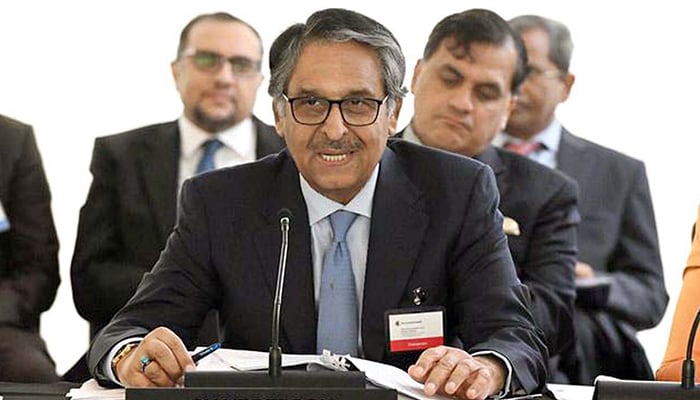
[ad_1]

In the Muslim world, the question of recognising Israel is a highly sensitive issue, especially in Pakistan, due to the closeness in ties with the Palestinians — who have been thrown out of their homes and killed by Israelis since 1947.
My exclusive story published on Sunday, under the title ‘Ties with Israel depend on national, Palestinian interests: FM Jilani’ was naturally picked up by national and international media.
However, some misrepresented what Foreign Minister Jalil Abbas Jilani had said and a few others twisted it for their own sake. It was done without realizing the sensitivity attached to the topic.
My story was a simple reaction to what Israeli Foreign Minister Eri Cohen had said the other day.
In an interview with an Israeli media outlet Kan News, Cohen had suggested, “six or seven’ Islamic nations were likely to normalize ties with Israel, following Saudi Arabia’s potential inclusion in the Abraham Accords”.
In my conversation with the caretaker foreign minister, who is still busy in New York, I asked him: “If Saudi Arabia officially recognises Israel, will Pakistan join Saudi Arabia?”
Jilani, a former diplomat, replied by saying: “Pakistan will take a decision keeping in view its own national interests and the interests of the People of Palestine.”
He never said that any process to recognise Israel is underway. He had only mentioned the principled position of Pakistan anchored in UN Resolutions on Palestine calling for an independent and sovereign state of Israel with Al Quds Al Sharif as its capital.
This is what he also stated in the OIC Contact Group on Palestine, where he stressed: “The OIC and international community must act to oblige Israel to halt its unlawful actions and move towards the path of peaceful dialogue to find a solution to the Arab-Israel conflict.”
Jilani went on to say: “Pakistan renews its call for establishment of a viable, independent and contiguous State of Palestine, based on the pre-1967 borders, with Al-Quds Al-Sharif as its capital.”
It is strange how the foreign minister’s statement was interpreted by some outlets without even realising that the position of countries on such vital issues doesn’t change overnight.
Moreover, Jilani has thirty-eight years’ of experience as a career diplomat.
Long before accepting the current portfolio, he had served as Ambassador to the United States, Belgium, Luxemburg the EU, and High Commissioner to Australia.
In addition to that, he was not only the spokesperson in the Foreign Office but also served as foreign secretary — the prime post in the Ministry of Foreign Affairs.
In a nutshell, his words should have been taken in the right context.
To understand, what Jilani meant, one should have gone back to his statement at the Ministerial Meeting of OIC Committee of Six on Palestine held on 19 September in New York.
In that meeting, the foreign minister emphasised: ” It is imperative that Israel be held accountable for its ongoing illegal actions and acts of aggression. As long as Israel acts with impunity, there can be no meaningful deterrence.”
And, if that was not enough, Jilani went a step further ahead to say: “I would like to reaffirm Pakistan’s full solidarity with the people of Palestine in their legitimate struggle for the right to self-determination.”
Those who made a fast judgment must now go back to FM’s statement and reflect on what he meant when said: “Pakistan will take a decision keeping in view its own national interests and the interests of the People of Palestine.”
[ad_2]
Source link